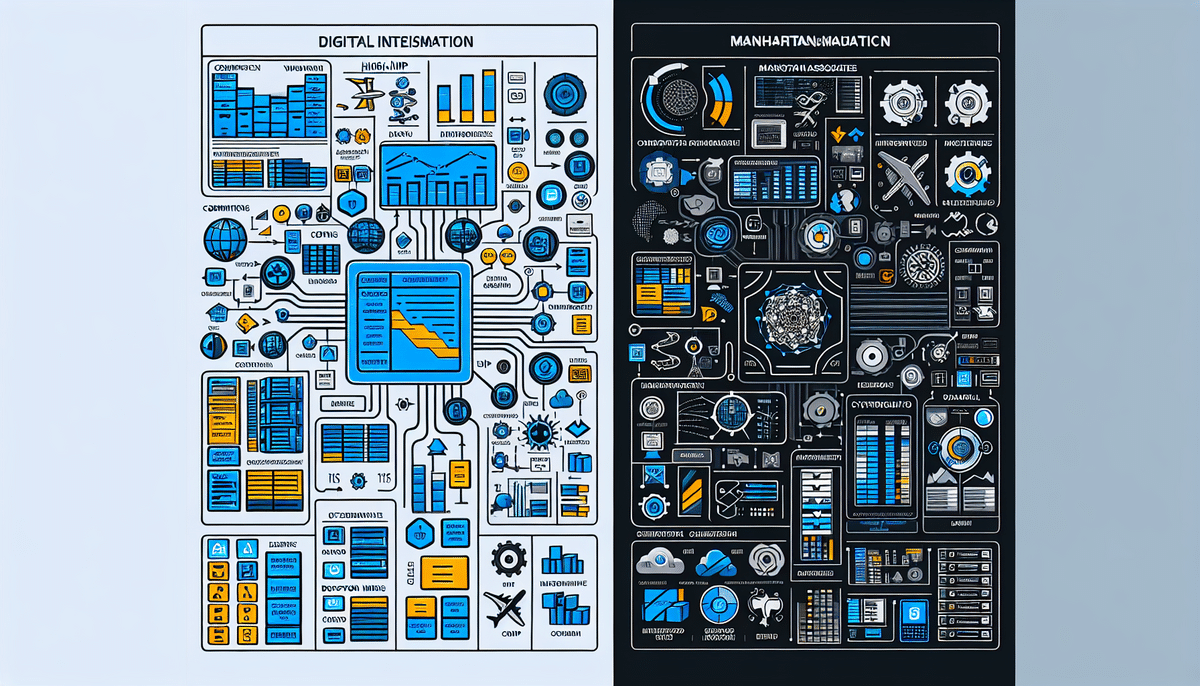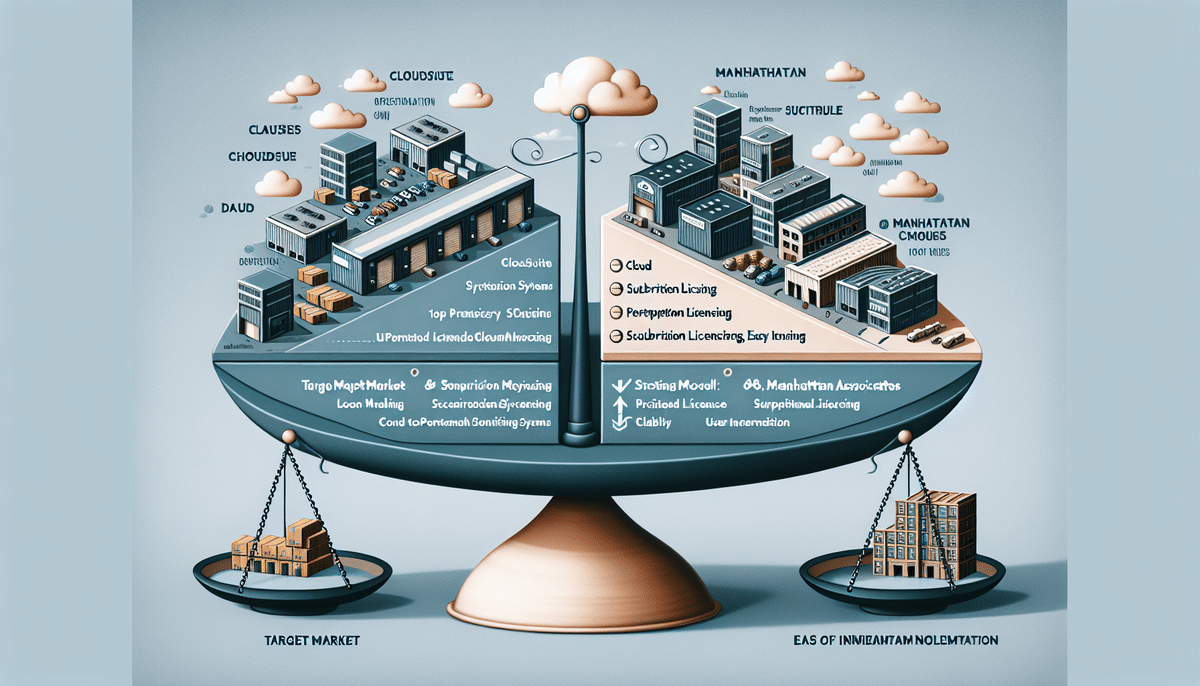Are you running a food and beverage wholesale e-commerce business? If so, you know how challenging it can be to manage your warehouse effectively. With thousands of products to handle and hundreds of orders to fulfill, effective warehouse management is crucial to your success. But how do you manage your warehouse efficiently without compromising your profit margins? The answer lies in the use of warehouse management systems (WMS).
What Are Warehouse Management Systems and Why Are They Important for E-Commerce Businesses?
A warehouse management system (WMS) is software that streamlines and optimizes warehouse operations. It helps businesses effectively manage their inventory, track shipments, and speed up order processing. WMS can also improve accuracy, reduce costs, minimize errors, and increase customer satisfaction. With this software, businesses can automate their warehouse processes and make informed decisions based on real-time data.
One of the key benefits of using a WMS for e-commerce businesses is the ability to handle high volumes of orders. During peak seasons, such as holidays or sales events, e-commerce businesses can experience a surge in orders. A WMS can help manage this influx by automating processes and providing real-time inventory updates. This ensures that orders are fulfilled accurately and efficiently, even during busy periods. Additionally, a WMS can help businesses identify trends and patterns in their order data, allowing them to make informed decisions about inventory management and future business strategies.
Understanding the Unique Needs of Food and Beverage Wholesale E-Commerce Businesses
Food and beverage wholesale e-commerce businesses have unique needs that are different from those of other businesses. These businesses require WMS that can handle perishable items, manage batch and lot numbers, monitor expiration dates, and ensure quality control. Since these businesses deal with food, they need to comply with FDA regulations, including managing recalls and ensuring product safety. The right WMS for food and beverage wholesale e-commerce businesses should be able to handle all these challenges effectively.
In addition to the challenges mentioned above, food and beverage wholesale e-commerce businesses also need to manage their inventory efficiently. They need to keep track of their stock levels, monitor their sales trends, and forecast their demand accurately. This is crucial for ensuring that they have enough stock to meet their customers' needs while minimizing waste and spoilage.
Another important aspect of managing a food and beverage wholesale e-commerce business is maintaining good relationships with suppliers. These businesses need to work closely with their suppliers to ensure that they receive high-quality products on time and at a reasonable price. They also need to be able to communicate effectively with their suppliers to resolve any issues that may arise, such as product defects or delivery delays.
Criteria for Evaluating Warehouse Management Systems for Food and Beverage Wholesale E-Commerce Businesses
When evaluating WMS for food and beverage wholesale e-commerce businesses, we focused on the following criteria:
- Batch and lot tracking
- Expiration date tracking
- Quality control management
- Temperature control management
- Integration with e-commerce platforms
- Integrations with third-party logistics providers (3PLs)
- Reporting and analytics
- User-friendliness
- Cost effectiveness
It is important to note that when evaluating WMS for food and beverage wholesale e-commerce businesses, the system should also be able to handle the unique requirements of the industry. This includes features such as managing multiple units of measure, handling complex pricing structures, and accommodating for seasonal fluctuations in demand. Additionally, the system should be able to integrate with other software solutions such as accounting and inventory management systems to provide a seamless experience for the business.
The Benefits of Implementing a Warehouse Management System in Your Business
Implementing a WMS in your business can provide many benefits, including:
- Reducing errors and increasing accuracy
- Increasing efficiency and productivity
- Enhancing customer satisfaction
- Improving inventory management
- Optimizing warehouse space utilization
- Lowering operational costs
- Improving traceability and compliance
Moreover, a WMS can also help in reducing the lead time for order fulfillment, which can lead to faster delivery times and increased customer loyalty. It can also provide real-time visibility into inventory levels, enabling businesses to make informed decisions about stock replenishment and avoid stockouts. Additionally, a WMS can help in streamlining the returns process, making it easier for customers to return products and for businesses to process those returns efficiently.
Top 10 Warehouse Management Systems for Food and Beverage Wholesale E-Commerce Businesses: A Comparative Analysis
After evaluating several WMS for food and beverage wholesale e-commerce businesses, we have selected the top 10 WMS systems that will address the unique needs of your business. The top 10 WMS for food and beverage wholesale e-commerce businesses are (in no particular order):
- NetSuite WMS
- Oracle WMS
- SAP WMS
- Infor WMS
- HighJump WMS
- Zoho Inventory WMS
- Cin7 WMS
- TradeGecko WMS
- Shipedge WMS
- Kinaxis RapidResponse WMS
Detailed Reviews of Each Top 10 Warehouse Management System, Including Pros and Cons
Here are detailed reviews of each of the top 10 WMS for food and beverage wholesale e-commerce businesses:
1. NetSuite WMS
NetSuite WMS is a cloud-based WMS that offers an all-in-one solution for businesses. This WMS can handle warehouse management, inventory management, order management, and financials. NetSuite WMS is ideal for businesses that require end-to-end visibility and control over their operations. The system integrates with leading e-commerce platforms, ensuring seamless processing of orders.
Pros:
- All-in-one solution
- End-to-end visibility
- Real-time data
- Scalable
Cons:
- Expensive
- Steep learning curve
- Limited customization options
2. Oracle WMS
Oracle WMS is a cloud-based WMS that offers advanced functionality to handle complex warehouse operations. This WMS can handle omnichannel operations, provides real-time inventory visibility, and offers mobile capabilities. With Oracle WMS, businesses can optimize warehouse layout, manage inventory, and track productivity.
Pros:
- Advanced functionality
- Real-time data
- Omnichannel operations
- Mobile capabilities
- Scalable
Cons:
- Expensive
- Complex setup
- Steep learning curve
3. SAP WMS
SAP WMS is a highly scalable and customizable solution that offers complete warehouse management capabilities. This WMS can handle batch and lot tracking, quality control, and expiration date management. It can also manage inventory and automate warehouse processes, offering real-time visibility into operations.
Pros:
- Highly customizable
- Complete warehouse management capabilities
- Real-time data
- Scalable
Cons:
- Expensive
- Complex setup
- Steep learning curve
4. Infor WMS
Infor WMS is a cloud-based solution that provides businesses with a complete warehouse management system. This WMS can handle inventory management, order management, and omnichannel operations. Infor WMS offers real-time inventory visibility, integration with e-commerce platforms, and task automation.
Pros:
- Complete warehouse management capabilities
- Omnichannel operations
- Real-time data
- Integration with e-commerce platforms
Cons:
- Expensive
- Complex setup
- Limited customization options
5. HighJump WMS
HighJump WMS is a cloud-based solution that offers complete warehouse management capabilities. This WMS can handle inventory management, order management, and omnichannel operations. HighJump WMS offers real-time inventory visibility, integration with e-commerce platforms, and task automation.
Pros:
- Complete warehouse management capabilities
- Omnichannel operations
- Real-time data
- Integration with e-commerce platforms
Cons:
- Expensive
- Complex setup
- Steep learning curve
6. Zoho Inventory WMS
Zoho Inventory WMS is a cloud-based solution that provides businesses with complete inventory management capabilities. With Zoho Inventory WMS, businesses can manage their inventory with ease, track orders, and automate tasks. The system is user-friendly and integrates with leading e-commerce platforms.
Pros:
- Complete inventory management capabilities
- User-friendly
- Integration with leading e-commerce platforms
Cons:
- Some features are limited in the lower-priced plans
- Integration with 3PLs is limited
7. Cin7 WMS
Cin7 WMS is a cloud-based solution that provides businesses with complete visibility of their inventory and supply chain. With this WMS, businesses can manage their inventory, automate processes, and optimize warehouse layout. Cin7 WMS offers integration with leading e-commerce platforms, 3PLs, and accounting systems.
Pros:
- Complete inventory management capabilities
- Real-time data
- Integration with leading e-commerce platforms and 3PLs
Cons:
- Expensive
- Steep learning curve
- Limited customization options
8. TradeGecko WMS
TradeGecko WMS is a cloud-based solution that provides businesses with complete inventory management capabilities. With TradeGecko WMS, businesses can manage their inventory with ease, track orders, and automate tasks. The system is user-friendly and integrates with leading e-commerce platforms.
Pros:
- Complete inventory management capabilities
- User-friendly
- Integration with leading e-commerce platforms
Cons:
- Some features are limited in the lower-priced plans
- Integration with 3PLs is limited
9. Shipedge WMS
Shipedge WMS is a cloud-based solution that provides businesses with complete order fulfillment capabilities. This WMS can handle inventory management, order management, packing, and shipping. Shipedge WMS offers real-time inventory visibility, integration with e-commerce platforms, and task automation.
Pros:
- Complete order fulfillment capabilities
- Omnichannel operations
- Real-time data
- Integration with e-commerce platforms
Cons:
- Expensive
- Complex setup
- Steep learning curve
10. Kinaxis RapidResponse WMS
Kinaxis RapidResponse WMS is a cloud-based solution that provides businesses with complete supply chain management capabilities. With this solution, businesses can manage their inventory, logistics, orders, and demand planning. Kinaxis RapidResponse WMS offers real-time data, advanced analytics, and is highly scalable.
Pros:
- Complete supply chain management capabilities
- Real-time data
- Advanced analytics
- Highly scalable
Cons:
- Expensive
- Complex setup
- Steep learning curve
How to Choose the Best Warehouse Management System for Your Food and Beverage Wholesale E-Commerce Business
When choosing the best WMS for your food and beverage wholesale e-commerce business, consider the following factors:
- Your business needs and requirements
- Cost and budget
- User-friendliness and ease of use
- Integration with your e-commerce platform and 3PLs
- Scalability and customization options
Tips for Successful Implementation of a Warehouse Management System in Your Business
Implementing a WMS in your business can be challenging. Here are some tips to help you successfully implement a WMS:
- Get buy-in from all stakeholders.
- Establish clear goals and expectations.
- Train your employees on how to use the system.
- Start with a pilot program.
- Monitor the system regularly to ensure it is meeting your needs.
- Always have a backup plan in case of system failure.
Case Studies: Real-Life Examples of Food and Beverage Wholesale E-Commerce Businesses That Have Successfully Implemented a Warehouse Management System
Here are some examples of food and beverage wholesale e-commerce businesses that have successfully implemented a WMS:
- Green Sheep Water: This company implemented Cin7 WMS to manage their inventory, cost, and delivery.
- Thrive Market: This company implemented HighJump WMS to optimize their warehouse layout and improve their order processing times.
- Latta USA: This company implemented NetSuite WMS to manage their inventory and shipping processes.
Conclusion
Effective warehouse management is critical to the success of food and beverage wholesale e-commerce businesses. By using the right WMS, businesses can optimize their warehouse operations, reduce costs, and improve customer satisfaction. When choosing a WMS, businesses must consider their unique needs, budget, and scalability. With the right WMS and proper implementation, businesses can achieve operational excellence and succeed in the competitive e-commerce environment.









